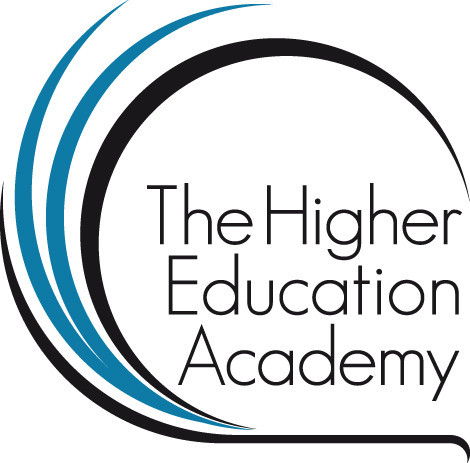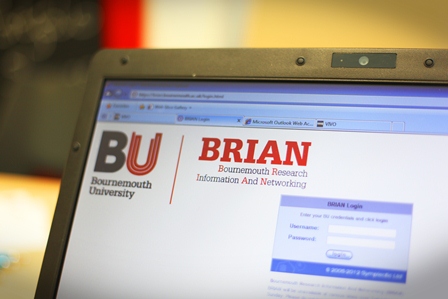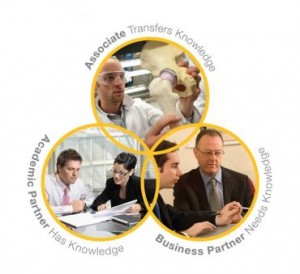 April had a high level of activity around bids being submitted and awarded, with Schools winning consultancy contracts, research grants and organising Short Courses.
April had a high level of activity around bids being submitted and awarded, with Schools winning consultancy contracts, research grants and organising Short Courses.
For ApSci, congratulations are due to Pippa Gillingham for her award from the Royal Entomological society, to David Parham for his contract with English Heritage for SWASH post-excavation, to Emilie Hardouin for her award from The Fisheries Society of the British Isles, to Mark Maltby for his consultancy with Central Bedfordshire Council, to Jonathan Monteith for his consultancy with Barbara Farquharson, to Richard Stillman for his consultancy with Natural Resources Wales, and to Miles Russell for his short course introducing Roman Britain. Good luck to Luciana Esteves for her application to the Royal Society, to Paola Palma for her contract to English Heritage, to Anita Diaz and Demetra Andreou for their individual applications to the European Commission and also to Anita for her application to the EU Lifelong Learning Programme, to Jonathan Monteith for his consultancy to the Forestry Commission, to Fiona Coward for a short course introducing World Prehistory, and to Kate Welham for a short course introducing Archaeology.
Congratulations to the Business School for Andy Mullineux’s AHRC award on responsibilities, ethics and the financial crisis. Good luck to Yasmin Sekhon for her British Academy application, to Ruth Towse and Maurizio Borghi for their joint application to AHRC, as well as Maurizio’s second application to AHRC, to Hiroko Oe for an application to the Japan Foundation Endowment Committee, to Fabian Homberg for his application to the SWIFT Institute on gender diversity in the finance industry, to Isaac Ngugi and Gordon Liu for their application to ESRC, and also to Juliet Memery, Dawn Birch, Chris Chapleo and Jeff Bray for their application to ESRC on the perceptions of the High Street retailing experience.
For DEC, congratulations to Hongnian Yu for his successful European Commission award for RABOT, and to Marcin Budka for his consultancy with Western Union Financial Services Inc. Good luck to Sarah Bate and Nicola Gregory for their application to the British Academy on the role of eye movements in the recognition of moving faces, also to Jane Elsley and Andrew Johnson for their individual applications to the British Academy, to Christopher Richardson for his short course on Digital Economy and Assurance for UKUD International Education Consultants, to Simon Thompson and Biao Zeng for their contract to Chongqing University, to Katherine Appleton for her application to The Humane Research Trust, to Siamak Noroozi, Philip Sewell and Mihai Dupac for their application to Remedi. There were a number of applications to the European Commission, and so good luck goes to Hongnian Yu for his two applications, as well as Zulfiqar Khan for his, and Abdelhamid Bouchachia and Hammadi Nait-Charif for theirs.
For HSC, congratulations are due to Keith Brown for his KTP with Dorset County Council, to Caroline Ellis-Hill for her short course Masterclass on action research, to Jane Murphy and Joanne Holmes for their short course on nutrition for older people living in the community, to Clive Andrewes for his short course from the Strategic Health Authority, to Edwin Van Teijlingen for his short course for a Masterclass in interviewing in semi-structured interviews, to Sarah Hean for her contract from Offender Health South West, and to Anthea Innes for her contract with the Alzheimer’s Society. Good luck to Jonathan Parker for his application to the British Academy, to Rosie Read for her application to NORFACE, to Vanora Hundley, Zoe Sheppard and Jennifer Leamon for their application to National Institute for Health Research, to Peter Thomas for his contract to Salisbury NHS Foundation Trust, and to Les Todres and Caroline Ellis-Hill for their contract to the Burdett Trust for Nursing for a strategy for improving ‘what matters to people’ to enhance dignity in care.
Congratulations to the Media School for Liam Toms and Mike Molesworth for their individual consultancies with Work Research Limited, and to Janice Denegri-Knott for her two consultancy contracts with Work Research Limited, to Laura Hampshaw and Matt Northam for their short course with the RBCH on WordPress, to Sofronis Efstathiou for a conference with SKILLSET, to Stephanie Farmer for her consultancy contracts with the National Trust and Grapevine Telecom Ltd, and to Heather Savigny for an annual conference for Media and Politics Specialist Group.
For the School of Tourism, congratulations go to Nicky Pretty for her contract with Godolphin Company, to Crispin Farbrother for his short course in wines, to Lisa Stuchberry for her contracts with Bournemouth and Poole College, Borough of Poole, and Holburne Museum, to Jon Hibbert for his contract with Liz Lean PR Ltd, and to Richard Gordon for his conference on International Disaster Management. Good luck to Keith Hayman and Simon Thomas for their short course to Hall & Woodhouse Ltd, to Nicole Ferdinand and Mary Beth Gouthro for their contract to King’s College London to research Carnival Futures: Notting Hill Carnival 2020, to Neelu Seetaram and Stephen Page for their application to the British Academy, to Miguel Moital for his application to the European Commission.
Finally, congratulations to Colleen Harding in HR for her award from the Leadership Foundation for HE for transformative approaches to career progression for academic staff aspiring to leadership roles, and good luck to Bogdan Gabrys, Hongnian Yu, Dimitrios Buhalis, Ross Hill, Keith Phalp, Ben Parris, Kate Welham, Alexander Pasko and Dean Patton for their EPSRC application for a Centre for Doctoral Training in Data Science.
 Message from the Higher Education Academy “Following on from the HEA-funded Public Engagement in the GEES Disciplines seminar at Manchester Metropolitan University in April 2012, a Good Practice Guide is being prepared. We are looking for short (c.500 words) case studies of public engagement in GEES disciplines to be included in the Guide. Case studies should broadly follow the following format: (1) Brief context (e.g. department, programme, type of public engagement – general public, industry, local community, schools etc.), (2) the nature of that public engagement (what you did and how you did it), (3) the benefits of the activity for all those concerned, and (4) any longer term / sustainable impacts arising from the activity. Please also provide (5) links to any useful resources, and (6) provide a suitable, copyright-free image for use in the publication.
Message from the Higher Education Academy “Following on from the HEA-funded Public Engagement in the GEES Disciplines seminar at Manchester Metropolitan University in April 2012, a Good Practice Guide is being prepared. We are looking for short (c.500 words) case studies of public engagement in GEES disciplines to be included in the Guide. Case studies should broadly follow the following format: (1) Brief context (e.g. department, programme, type of public engagement – general public, industry, local community, schools etc.), (2) the nature of that public engagement (what you did and how you did it), (3) the benefits of the activity for all those concerned, and (4) any longer term / sustainable impacts arising from the activity. Please also provide (5) links to any useful resources, and (6) provide a suitable, copyright-free image for use in the publication.

































 Beyond Academia: Exploring Career Options for Early Career Researchers – Online Workshop
Beyond Academia: Exploring Career Options for Early Career Researchers – Online Workshop UKCGE Recognised Research Supervision Programme: Deadline Approaching
UKCGE Recognised Research Supervision Programme: Deadline Approaching SPROUT: From Sustainable Research to Sustainable Research Lives
SPROUT: From Sustainable Research to Sustainable Research Lives BRIAN upgrade and new look
BRIAN upgrade and new look Seeing the fruits of your labour in Bangladesh
Seeing the fruits of your labour in Bangladesh ECR Funding Open Call: Research Culture & Community Grant – Apply now
ECR Funding Open Call: Research Culture & Community Grant – Apply now ECR Funding Open Call: Research Culture & Community Grant – Application Deadline Friday 12 December
ECR Funding Open Call: Research Culture & Community Grant – Application Deadline Friday 12 December MSCA Postdoctoral Fellowships 2025 Call
MSCA Postdoctoral Fellowships 2025 Call ERC Advanced Grant 2025 Webinar
ERC Advanced Grant 2025 Webinar Update on UKRO services
Update on UKRO services European research project exploring use of ‘virtual twins’ to better manage metabolic associated fatty liver disease
European research project exploring use of ‘virtual twins’ to better manage metabolic associated fatty liver disease